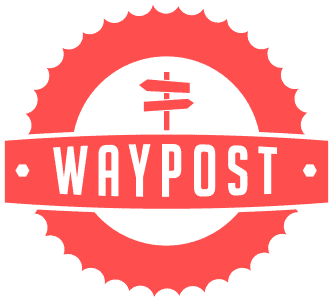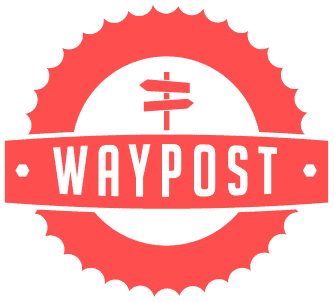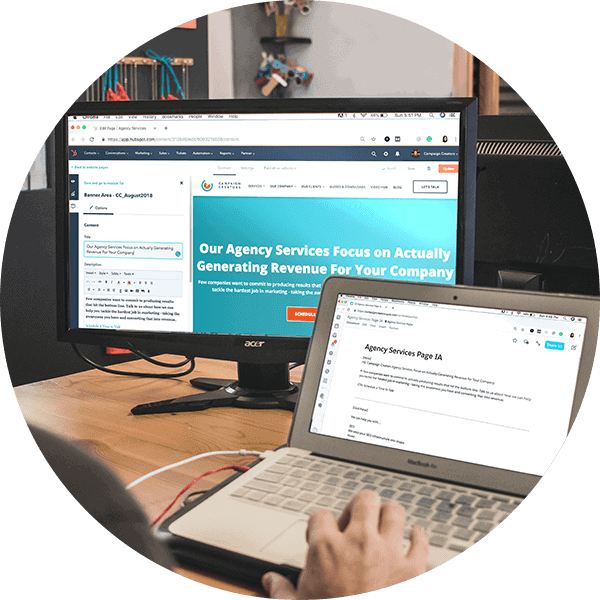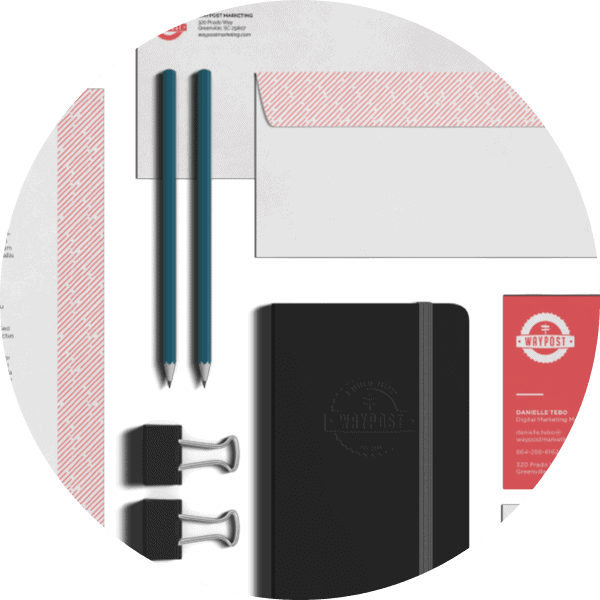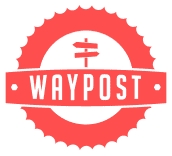
Google Ads Auction Insights: Understanding Your Competition
November 12, 2024
Improve Cross-Selling with Customer Feedback Management
November 26, 2024The manufacturing industry has traditionally leaned on tried-and-true marketing methods like direct mail, tradeshows, and printed catalogs. While these strategies have served their purpose, they alone can no longer keep pace in today’s competitive landscape. Enter marketing automation — a game-changer that leverages digital tools to streamline processes, boost efficiency, and drive revenue. Yet, despite its transformative potential, many manufacturers hesitate to embrace it, perceiving it as too complex or irrelevant to their operations.
But here’s the reality: automation is no stranger to the manufacturing world. From robotic assembly lines to AI-driven quality control, the industry thrives on optimizing processes. So why not bring the same level of innovation to your marketing efforts? Forward-thinking manufacturers who adopt modern manufacturing marketing are positioning themselves as leaders in a rapidly evolving market.
Did you know? 56% of manufacturers currently use or plan to adopt marketing automation within the next 12 months, with 63% reporting a significant improvement in lead generation and customer retention.
This rapid adoption highlights the urgency for manufacturers to embrace automation or risk falling behind competitors already reaping its benefits.
What is Marketing Automation?
In the manufacturing world, automation is second nature. From robotic assembly lines to AI-powered quality control, manufacturers understand the value of streamlining operations. So why stop at the factory floor? Marketing automation applies that same principle to your digital marketing strategies, transforming time-consuming tasks into efficient, automated processes.
At its core, marketing automation uses specialized software to handle repetitive tasks like email campaigns, social media posting, and lead nurturing with minimal human intervention. But it’s more than just a time-saver — it’s a strategy that empowers your marketing team to deliver highly personalized, data-driven experiences at scale.
For manufacturers, this means you can:
- Expand your market reach without additional overhead.
- Strengthen customer relationships through consistent, timely communication.
- Drive more revenue by focusing on the right prospects at the right time.
Marketing Automation Simplified
Here’s how marketing automation helps manufacturers stay competitive:
- Automate repetitive tasks like email campaigns, data entry, and lead scoring.
- Deliver personalized content to the right audience at the right time.
- Boost efficiency across your marketing and sales teams.
By integrating marketing automation into your strategy, you’re not just keeping up — you’re staying ahead of the competition.
B2B Marketing Automation
The B2B customer journey is famous for being notoriously longer and more complex than its B2C counterpart. As such, when marketing complex B2B products, B2B marketing automation isn’t just helpful — it’s critical — for driving sales success. Throughout this extended decision-making process, B2B marketing automation enables you to maintain consistent, timely, and relevant communication with prospects.
This ongoing engagement keeps your brand top of mind, builds trust, and reinforces confidence in your solutions. By offering a seamless experience that demonstrates your expertise, professionalism, and commitment to customer relations, B2B marketing automation helps you gain a significant advantage over competitors who neglect long-term lead nurturing.
Did you know? Nearly two out of five marketers globally reported that their customer journeys are mostly or fully automated.
Key Benefits of Marketing Automation for Manufacturers
Marketing automation offers numerous advantages for manufacturers. Here are six key benefits:
Revenue Growth
Marketing automation helps manufacturers increase revenue by enabling more personalized and strategic marketing. By tailoring campaigns based on customer behavior, preferences, and needs, marketing automation ensures that your messaging reaches the right audience at the right time. This targeted approach fosters stronger engagement, increasing sales and lifetime customer value.
FUN FACT #1: On average, companies achieved an ROI of $5.44 for every dollar invested in marketing automation within the first three years.
FUN FACT #2: On average, companies can anticipate a revenue increase of approximately 34% through automation.
Time-Saving and Better Time Allocation
Automating repetitive, manual marketing tasks frees up valuable time for your team to focus on high-impact strategic activities. Marketing automation ensures consistent communication without constant manual intervention, be it data entry, sending emails, or providing prompt responses to prospect inquiries. This efficiency allows your teams to dedicate more time to relationship-building and complex problem-solving tasks that do require a human touch.
FUN FACT #1: About half of companies using marketing automation achieve time-saving of repetitive tasks.
FUN FACT #2: Nearly 40% of companies using marketing automation report report improved staff time efficiency.
Improved Marketing & Sales Alignment
A marketing automation strategy helps align marketing and sales efforts, fostering better intra-departmental collaboration and communication. By automating lead scoring, nurturing, and handoff processes, manufacturers ensure leads are delivered to sales at the optimal moment for conversion, driving operational efficiency and revenue.
FUN FACT: Close to a third of marketers experienced better marketing/sales collaboration through marketing automation.
Better Quality Marketing
Marketing automation reduces the likelihood of human error in marketing campaigns. This translates into fewer missed opportunities and elevated brand image, ultimately contributing to higher-quality, result-driven marketing.
FUN FACT: 40% of companies using marketing automation saw an increase in lead quality, resulting in higher conversion rates.
Enhanced Brand Image and Reputation
Marketing automation enables you to deliver a seamless and satisfying customer experience across all touchpoints. When prospects feel “special” through personalized content, these interactions establish your brand as reliable and customer-focused, gradually building its positive reputation.
Scalable Market Expansion
As your manufacturing business grows, marketing automation allows you to scale your marketing effortlessly. You can reach a larger audience and manage more complex campaigns without a proportional increase in time or resources. This scalability ensures your marketing strategies can keep pace with your business growth.
Tasks That Can Be Automated
Understanding the incredible benefits of marketing automation opens up exciting possibilities for what you can automate! It can truly streamline numerous activities across the customer lifecycle, empowering manufacturers to connect with prospects and customers more effectively at every stage. Tasks you can automate generally fall into four main categories, each designed to enhance specific aspects of your marketing strategy.
To illustrate these automation possibilities, let’s look at HubSpot – our preferred marketing automation software and CRM. HubSpot’s user-friendliness, integrated approach, and emphasis on automation make it particularly suitable for manufacturing companies looking for a practical yet powerful tool to facilitate growth and maintain meaningful customer relationships.
Let’s examine each category and see how HubSpot implements these automation tasks:
1. Lead Generation
Pain Point Solved: Automated lead generation enables you to broaden your brand’s reach and gather valuable data with minimal effort, effectively boosting brand awareness.
Lead generation is a vital first step in attracting potential customers to your manufacturing business. If you were accustomed to interacting with guests face-to-face and exchanging business cards at tradeshows, there are equivalent strategies in the marketing automation world. These include targeted paid ads, gated content that collects user information through forms, and incorporating live chat on your website. HubSpot’s marketing automation tools allow you to create these lead-generation assets and track their real-time performance easily. Check out Hubspot’s form builder feature (figure 1) and chatbot setup (figure 2).
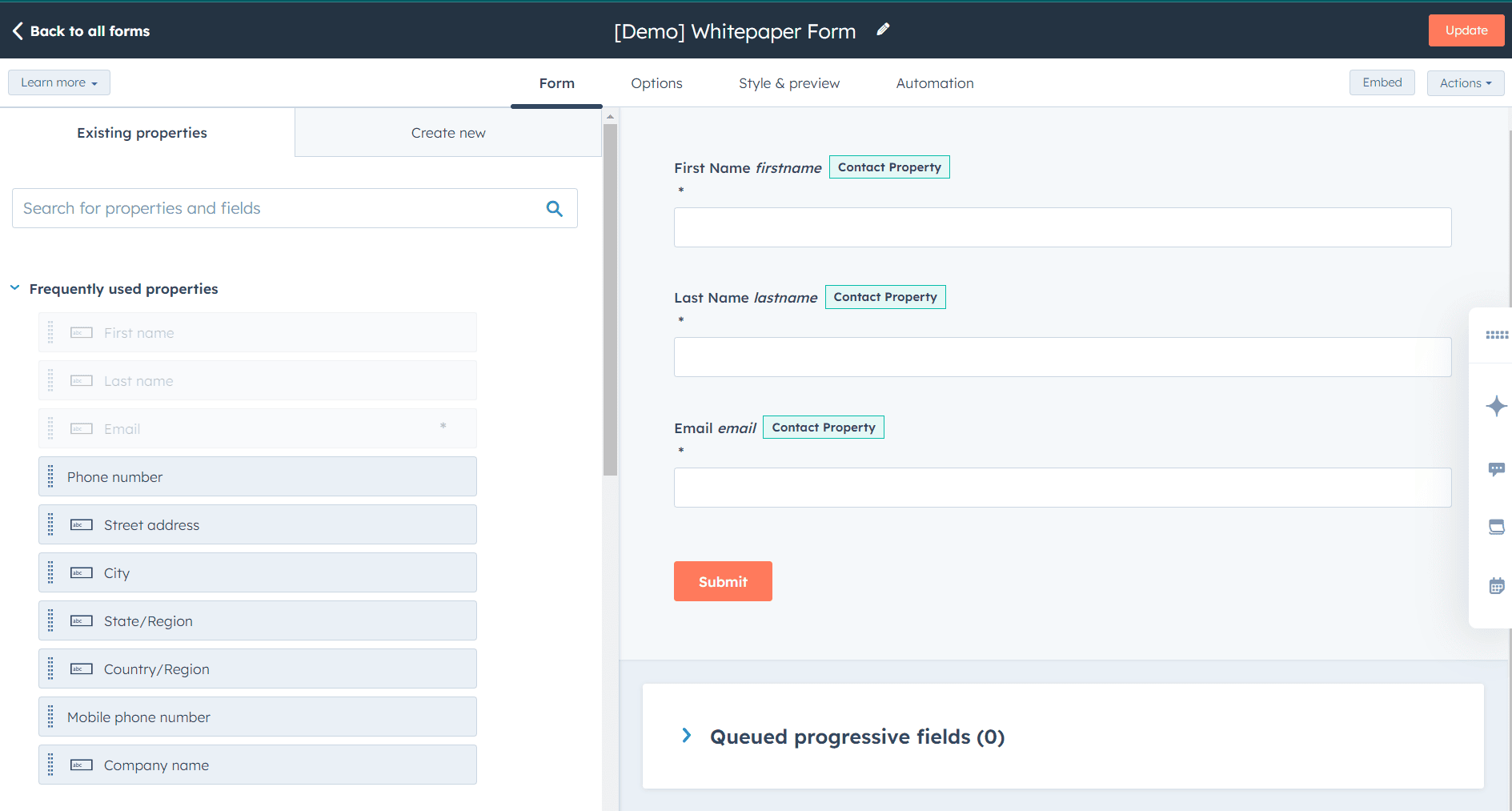
Figure 1: Form builder
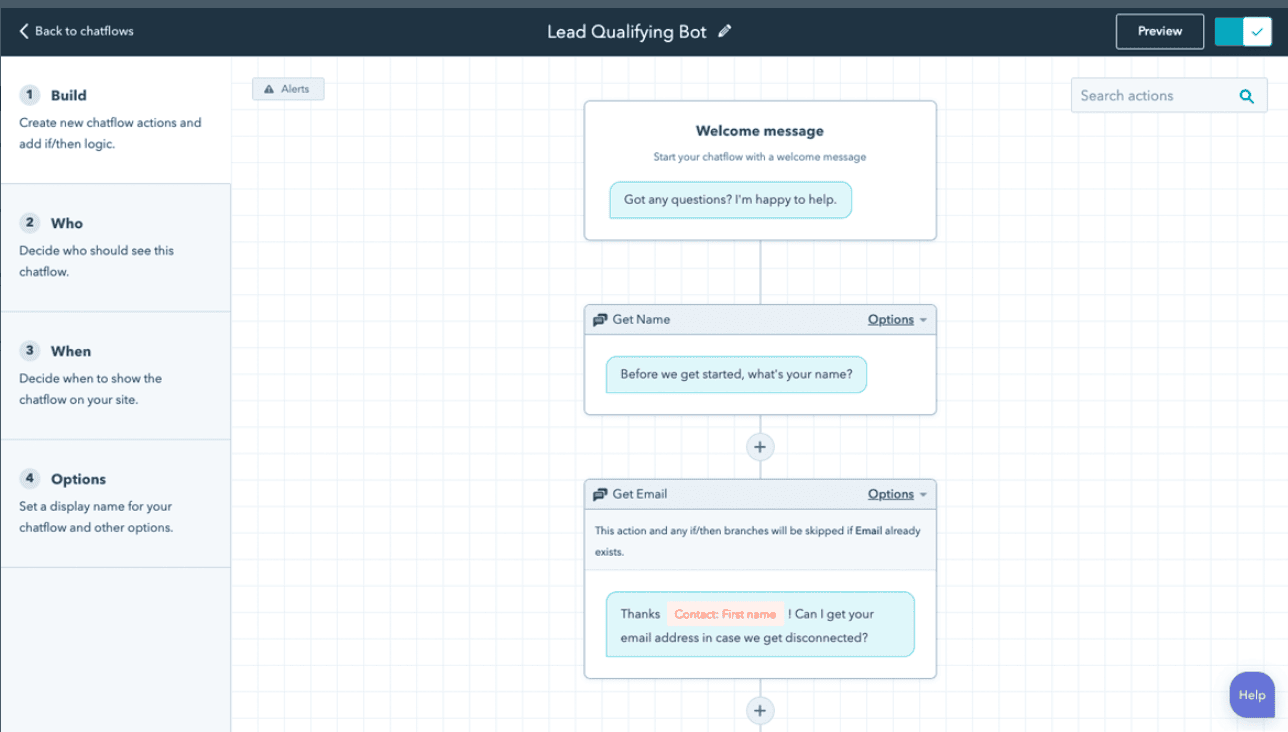
Figure 2: Chatbot setup
2. Lead Nurturing & Personalization
Pain Point Solved: Automated lead nurturing addresses the issue of long sales cycles in manufacturing by keeping prospects engaged with personalized emails and content.
Once you’ve captured leads, nurturing them effectively is crucial to moving them through the buyer’s journey. With HubSpot’s marketing automation tools, you can automate personalized email workflows based on a lead’s behavior and demographics to keep prospects informed and supported. You can use SMS communications for timely, more personalized updates, and set up A/B testing to ensure audiences see the content they are more likely to resonate with. This approach helps build trust and solidify brand recognition over time. Check out HubSpot’s email workflow builder (figure 3) and Hubspot’s A/B testing dashboard (figure 4).
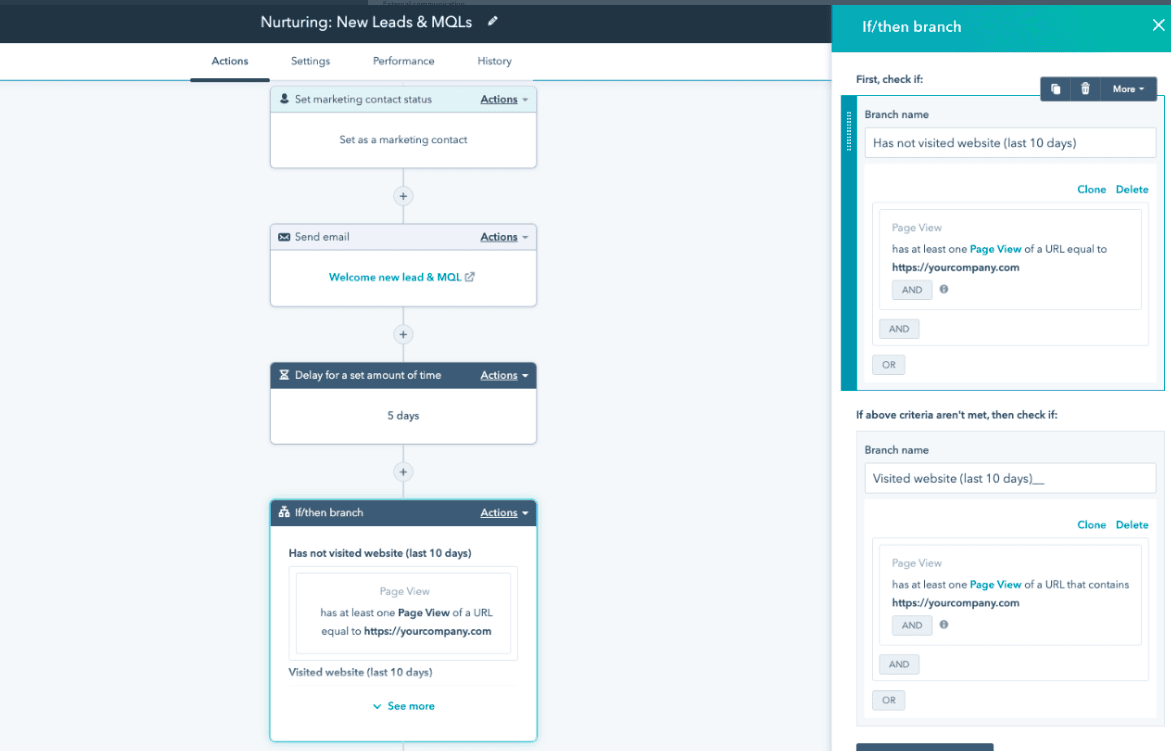
Figure 3: Email workflow builder
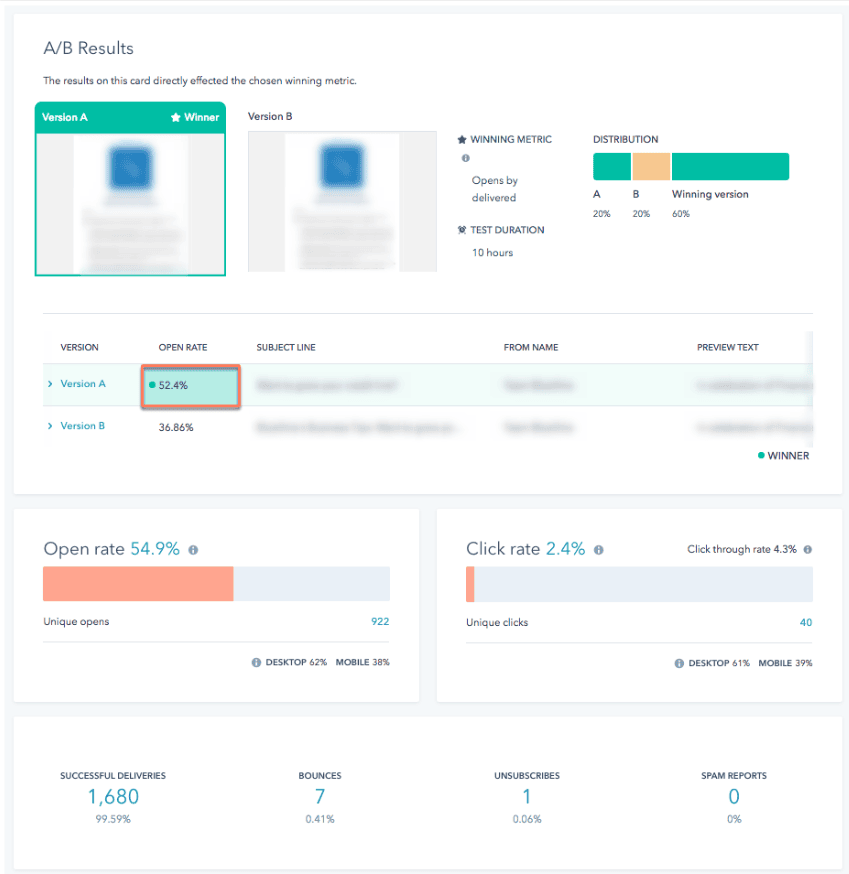
Figure 4: A/B testing dashboard
3. Lead Management
Pain Point Solved: Automated lead management allows you to organize your database and strategically prioritize where to focus your team’s efforts.
Two ways HubSpot’s marketing automation tools support this are lead scoring and lead segmentation. Lead scoring ranks prospects based on their engagement with your content, allowing sales and marketing teams to focus on the most high-potential prospects. Lead segmentation categorizes contacts using pre-defined criteria, enabling more precise targeting. HubSpot’s CRM seamlessly integrates these lead management features with your marketing efforts to ensure no leads fall through the cracks. Check out HubSpot’s lead scoring feature and how marketing tasks are assigned accordingly.
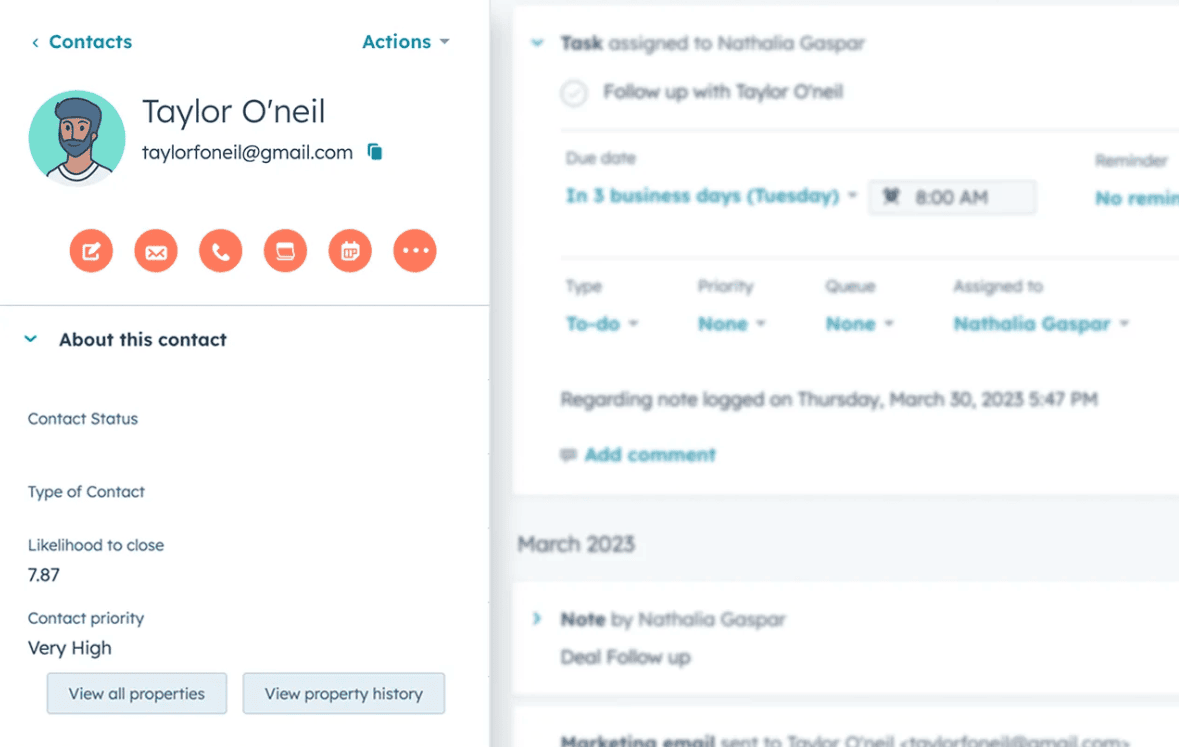
Figure 5: Lead scoring
4. Analytics & Reporting
Pain Point Solved: Automated reporting delivers consistent marketing data, ensuring you stay informed about how your marketing dollars are used and identifying opportunities to optimize strategies for a higher return.
Marketing automation extends beyond customer interactions to how you track and optimize your marketing. HubSpot’s reporting tools allow you to automate customized report generation and data visualization, giving you real-time, relevant, and easy-to-understand insights into marketing and sales performance. These dashboards help you make data-driven decisions faster and more accurately. Check out HubSpot’s reporting tool.
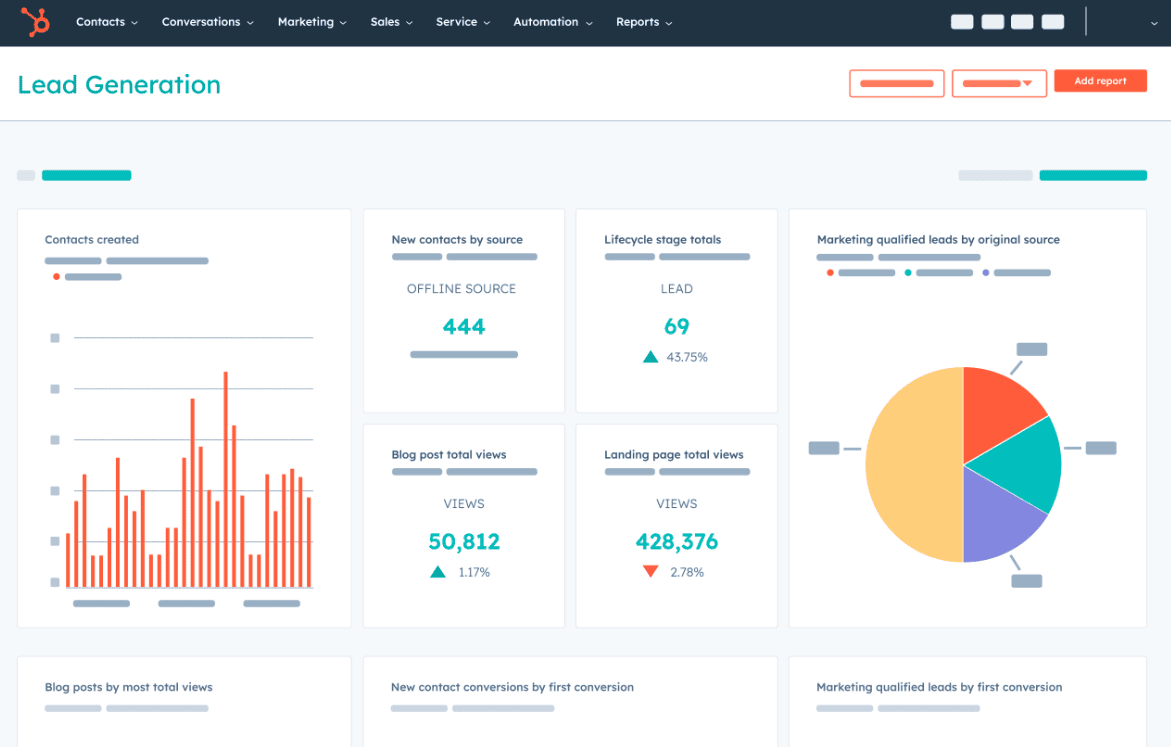
Figure 6: Reporting
Below is a summary of all marketing activities that can be automated, divided into the four categories mentioned:
| Lead Generation | Lead Nurturing & Personalization | Lead Management | Analytics & Reporting |
|
|
|
|
How to Get Started with Marketing Automation
We hope that by now you’ve recognized the immense potential of marketing automation for your manufacturing business. The next step is to start capitalizing on this opportunity. To confidently guide you through the process, we’ve created a 7-step checklist that takes you from initial planning to ongoing optimization. Remember, the key is to make marketing automation work for you, so take your time with each step, ensuring you’re comfortable before moving on to the next.
- Define Your Goals: Identify clear objectives for what you want to achieve with marketing automation.
- Assess Your Current Marketing Processes: Evaluate your existing marketing activities per your defined goals to pinpoint areas that would benefit most from marketing automation. Use this manufacturing marketing audit checklist for help with this process.
- Choose Your Marketing Automation Platform: Select a platform that fits your needs, considering factors like ease of use, integration capabilities, and scalability. If you’d like to test HubSpot, schedule a Free HubSpot Demo here.
- Clean and Organize Your Data: Ensure your customer data is accurate, up-to-date, and properly segmented for effective use in automated campaigns. Poor marketing data will put your business at risk!.
- Plan Out Your Marketing Automation Strategy: Outline a clear strategy that details how you’ll automate tasks across the customer journey and identifies key touchpoints for automation.
- Build Automated Workflows and Rules: Follow the strategy of the previous step to set up all workflows and automated tasks.
- Implement, Monitor, and Optimize: Launch your automated workflows and continuously track key performance indicators to make timely, data-driven adjustments for maximized ROI.
Your Next Steps in Marketing Automation
Marketing automation may seem complex at first glance, but for innovative manufacturers like you, it’s simply another tool in your arsenal. Instead of viewing it as a challenge, consider it a way to deliver your value directly to potential customers — an opportunity no business can afford to miss.
We're here for you if you’re ready to discuss adopting marketing automation for your manufacturing business! At Waypost Marketing, we have over 20 years of experience helping manufacturers shift their marketing efforts to the digital landscape. Learn more about our approach to digital marketing for manufacturing businesses, and reach out to start the conversation! Get ready to reduce your sales cycle and increase revenue with tailored marketing automation for manufacturers.
